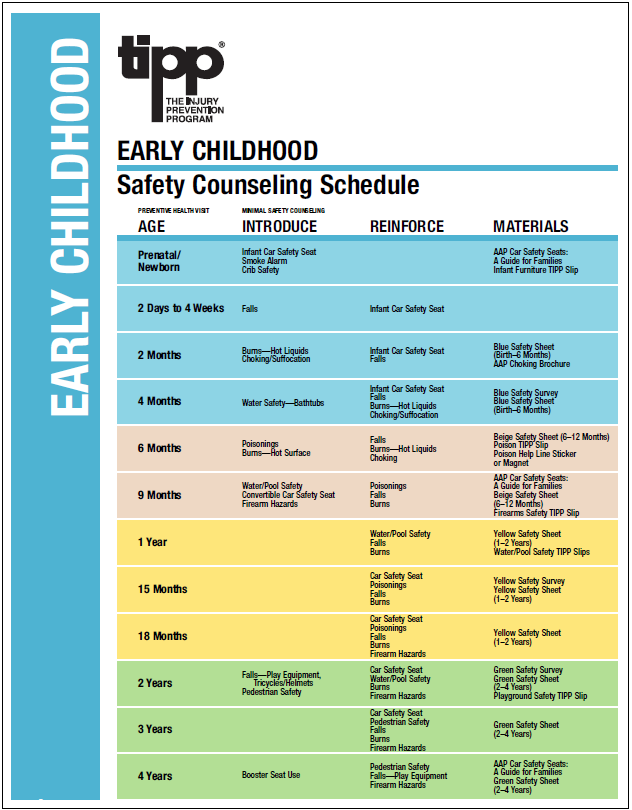Participating Sites


Site Description
The UNC Chapel Hill School of Medicine and the University of Miami Miller School of Medicine make up the active comparative sites for this study. The topic of Injury Prevention was chosen because injuries remain the major cause of death for children, and injury-prevention discussions are a cornerstone of primary care for young children. At our control sites enrolled families received “usual care” with respect to obesity prevention and instead received implementation of The Injury Prevention Program (TIPP). TIPP was designed by the American Academy of Pediatrics’ (AAP) Committee on Injury, Violence, and Poison Prevention to help pediatricians identify and address at-risk behaviors, to deliver developmentally appropriate anticipatory guidance, and provide written resources to parents and caregivers.
Our goal is to assess the effect of the attention control program (TIPP) on caregiver report of injury prevention in the home and actual injuries of child during the study period. To maintain parity in attention with the intervention group, the PIs also designed “TIPP Tangible Tools,” physician training modules in injury prevention, and physician observation checklists that accounted for developmentally appropriate injury prevention counseling. In keeping with active control principles, families and resident physicians at control sites received equal duration and frequency of attention as their counterparts at the intervention sites.
Counseling Schedule

Eligibility Requirements
Pediatric Patients:
Specific Inclusion Criteria at the parent-child dyad level will include:
- Consent from a primary caregiver (i.e., parent or legal guardian)
- Caregiver's ability to speak English or Spanish
- Infant presenting for a 2 month well-child visit (child is 6 ≥ 12 weeks old)
- Caregiver agrees to participate in the study, and agrees to bring their child to all well-child care visits until their 2 year well-child care visit.
Specific Exclusion Criteria at the parent-child dyad level will include:
- Child born prior to 32 weeks' gestational age or with a birth weight < 1500 grams
- Child with weight/length < 3rd percentile at 2 months of age
- Child with a diagnosis of failure to thrive or with weight that has dropped ≥ 2 percentile curves since the previous well child visit
- Child with known medical problems that may affect their ability to thrive or requires a special diet (e.g. metabolic disease, uncorrected congenital heart disease, renal disease, lung disease)
- Caregiver with significant mental or neurologic illness likely to impair their ability to participate
- Caregiver age < 18 years
- Caregiver with known plans to move out of the immediate area during the study period
- Caregiver with poor visual acuity (i.e. vision worse than 20/50 with Rosenbaum Pocket Screener as assessed at the time of recruitment)
Pediatric Residents:
Specific Inclusion Criteria at the Pediatric Resident level will include:
- Participation in the medical center's pediatric resident training program
- Providing regular care (> 3 sessions per month) in the pediatric resident primary care clinic; AND
- Consent to participate in the study
Specific Exclusion Criteria at the Pediatric Resident level will include:
- Providing no regular care in the pediatric resident primary care clinic (e.g., transitional-year resident, Medicine/Pediatrics resident); OR
- Known plans to leave the training program during the ensuing 6 months